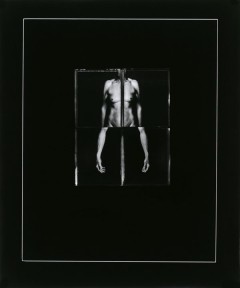Editorials Evan Flory-Barnes — November 11, 2011 14:01 — 1 Comment
Critique vs. Negativity – Evan Flory-Barnes
On my mind of late has been a series of exchanges I have had with a rather well known musician who lives in Seattle, a gentleman named Cuong Vu. I admire him in many ways, from the energetic output and creativity of his music and the positive effect he has had on developing a cohesive and creative musical scene in this city. It is inspiring. His energy and intentions are aligned with many of the ideas and ideals I have held in my heart for Seattle for a long time now, having been born and raised in this city of rain. Naturally, I have a desire to know and connect to Cuong more and more. However, connecting to him has been obscured outwardly by assumptions from others based on interactions that have been primarily secondhand. As a result, this circumstance has inspired a clarity in purpose and desire to share what I feel is a distinction between true critique and negativity.
Much of my life has to do with the accepting, embracing and loving of myself and others. This extends to the part of myself that attempts to refuse this idea. As an artist, I am concerned with the quality of life around of me. I am concerned about the quality of music, food, film and all the various aspects of what is referred to as culture. Therefore, I am always seeking to find better ways as to how my practice of loving and acceptance might be integrated with my cultural concerns.
True critique, especially in burgeoning arts communities like Seattle, is important. Oftentimes, what is called critique is marred by mere negativity or the critic’s desire to showcase their knowledge of an idiom while ignoring the intent of the artist. Instead of offering insight into the work, the critic often uses the work as a means to prop himself up as better than the artist, therefore extending the critic into the realm of the negative, not of the constructive. This sort of environment feeds the “crabs in the barrel†mentality: fighting over scraps, passive aggression, jealousy and “vibe” that is absolutely detrimental to a true artistic cultural community’s growth and well-being. In its place should be a caring, engaged and truth-telling open space—truth telling of the deepest kind creates evolutionary growth within the self and within the other, if heard properly. Without these elements, a catalyst for growth and deepening of the artists may be left unspoken. This is the last thing this city needs.
Do you love and care for your environment? Do you wish to see it flourish? Do you impart perspective out of care and out of a confidence in your knowledge and experience, or do you give perspective to put people in their place and dismiss their actual and their potential? When perspective is offered do you open yourself to hear and learn from another’s perspective, or let it slip off you? These are questions that I am constantly concerned with as the artistic and cultural community within Seattle continues to come of age and develop into a new place, into an actual home.
I truly believe that something profound is unfolding here in this city and it will require an ultimate urgency to converge and interact in ways that we Seattleites may not be used to. Indeed, as another friend of mine has noted, “replace the void with urgency.†In my heart, I feel that idea lies at the center of an artistic revolution of a profound depth.
One Comment
Leave a Reply
The answer isn't poetry, but rather language
- Richard Kenney




I have come to know Evan through his music, and his writing. The topic here has such profound implications not only in the world of culture and critique, but also in the inter – personal communications we all experience daily. Thank you Evan for continuing to open our minds and our hearts.